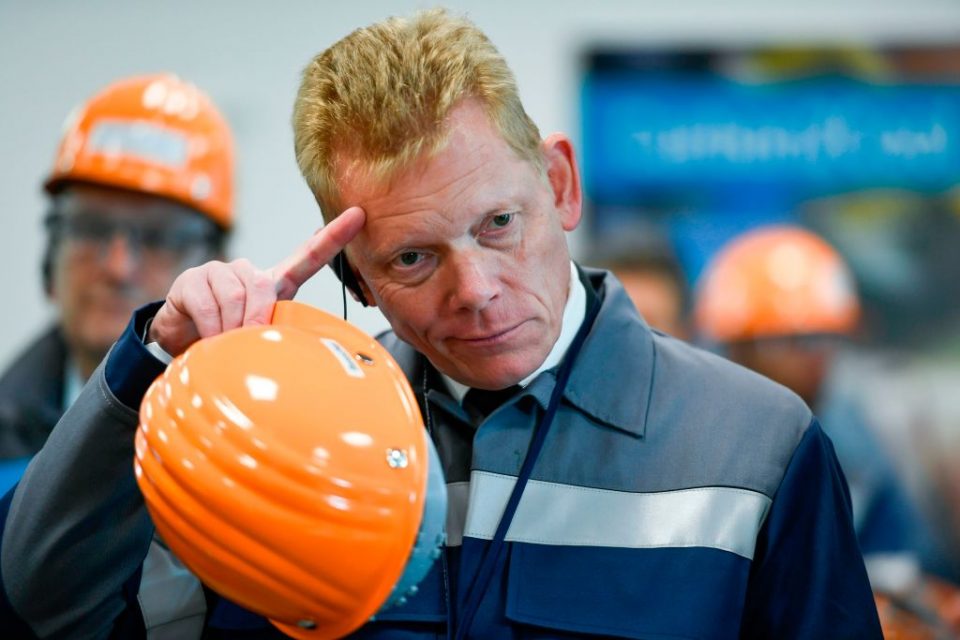Thyssenkrupp issues another profit warning amid manufacturing slump

Thyssenkrupp, the German steel making giant, today gave its fourth profit warning under chief executive Guido Kerkhoff, who faces mounting pressure to turn the company around.
The firm announced it expects to make around €800m (£738m) profit this year, a significant downgrade on its previous forecast for a figure between €1.1bn and €1.2bn.
Read more: Thyssenkrupp warns 6,000 jobs could go after regulator scuppers European steel merger
Despite this, shares rose three per cent this morning as Kerkhoff announced fresh plans to restructure the sprawling conglomerate.
Thyssenkrupp brought in €34.8bn of revenue last year. It employs more than 160,000 people across more than 600 divisions, whose functions include making submarines, elevators and steel parts for the automotive industry.
The latter of those industries has done part of the damage this year. Thyssenkrupp said its growth had suffered from a “marked downturn” in the global car manufacturing industry.
Growth has also struggled amid high raw materials prices and a weakening German economy.
German manufacturing orders picked up this month, but the sector has been in the doldrums for most of this year. The US-China trade war, slowing global growth, Brexit and new car emissions tests in Germany have caused demand for German manufactured goods to slump.
“One thing will stop, which is that businesses without a clear perspective are burning cash on a permanent basis, destroying value that other business areas have generated,” Kerkhoff told journalists.

Kerkhoff under pressure
Chief executive Kerkhoff’s reputation has taken a battering at the firm, after he oversaw a botched merger with Tata Steel and he failed to sell its capital goods business.
The German is plotting next to sell Thyssenkrupp’s elevator business, which the firm has already earmarked for its own float on the German stock market. He said this morning the firm has received expressions of interest from several parties for a potential sale.
“The obviously great interest of competitors and financial investors shows us how attractive the elevator business is,” Kerkhoff said.
Read more: Eurozone economy slows as Germany weakness continues
He also put three struggling business units under review today, and hopes to fix the firm’s sprawling corporate structure which has attracted long-term criticism from its investors.
Kerkhoff stepped into the role after Thyssenkrupp’s chairman and chief executive both resigned last year.
Main image: Getty